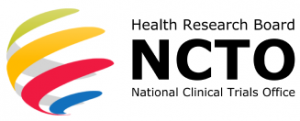Regulatory And Ethics Approvals For Clinical Trials Of Investigational Medicinal Product (CTIMP):
The EU Clinical Trial Regulation 536/2014 came into force at end of January 2022.
All clinical trial applications must now be submitted via the Clinical Trial Information System (CTIS). The CTIS is the portal allows sponsors to make a single application covering all EU countries. The application is considered by the regulatory authorities in each country where the trial is being conducted (’concerned member states’ CMS) and by the National Research Ethics Committee in each of the CMS. One member state is chosen to coordinate the response (’reporting member state’- RMS). Sponsors receive one approval which covers Regulatory and Ethics approvals for all sites in all the CMS.
Clinical trials must be conducted in accordance with ICH-Good Clinical Practice (ICH-GCP), an internationally recognised ethical and scientific quality standard encompassing the design, conduct, recording and reporting of clinical trials and allowing mutual acceptance of clinical trial data.
Regulatory and Ethics Approvals For Clinical Investigations Of Investigational Medical Devices:
Depending on the type of medical device being trialled it will fall under one of two EU medical device regulations:
- Medical Device Regulation (EU) 2017/745.
- In-Vitro Diagnostic Medical Device Regulation (EU) 2017/746.
To apply for approval to conduct a clinical investigation in Ireland sponsors need both regulatory (HPRA) and ethical approvals (NREC-MD).
Post marketing clinical investigation of a CE marked device may only require notification to HPRA (rather than an application).
Clinical Investigations should also adhere to ISO – ISO 14155:2020 – Clinical investigation of medical devices for human subjects — Good clinical practice.
Regulatory and Ethics Approvals For Other Interventional Studies (e.g Food supplement) and Observational Studies.
For these lower risk studies it is not necessary to apply for HPRA approval but it is necessary to apply for ethical approval from a local ethics committee (https://hseresearch.ie/research-ethics/).



